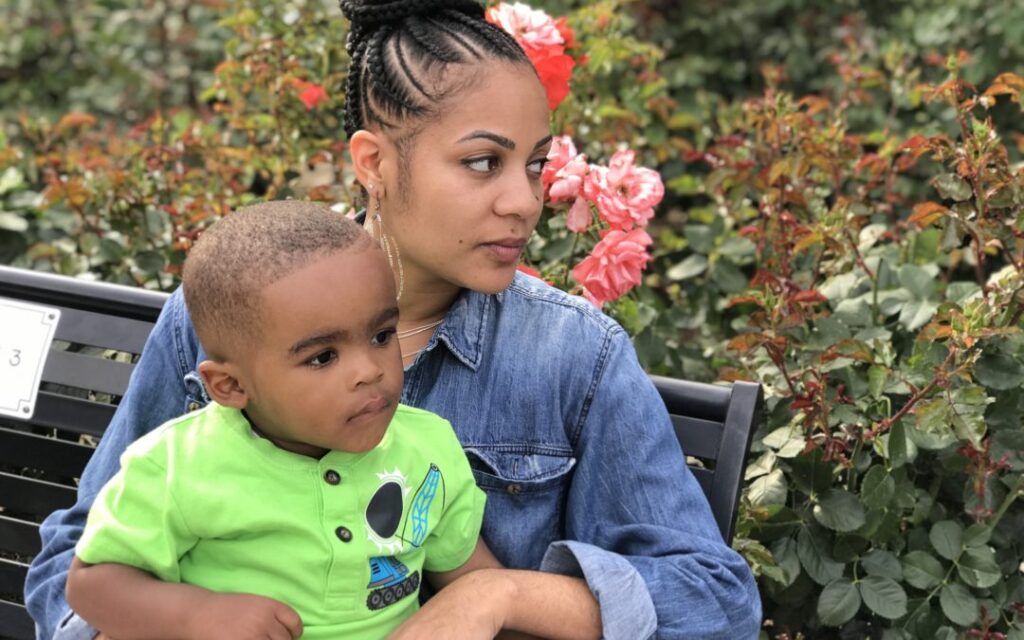Other than that, she wasn’t sure what to expect. “The first day there, I walked in nervous, but I left feeling like I was at home,” Angela explains. “I was comfortable; the staff was really easy to talk to and informative. It was a place where we could speak freely in an open forum and not have to worry about being judged.”
BIH addresses the problem of poor birth outcomes and health disparities affecting Black women and their infants. For example, Black women are at a higher risk for a number of pregnancy-related issues, including preterm birth, preeclampsia, gestational diabetes, heart attack and stroke. These disparities exist regardless of education or socio economic status. That is why BIH focuses on increasing Black women’s social support, decreasing their stress and empowering them individually and as a community.
High-Risk Pregnancy
“I was aware that my population was at high risk for lots of things, but I wasn’t aware that high-risk pregnancy was so high for African-Americans,” Angela says, adding that the group understood each other’s fears and immediately bonded.
Continued Support
“On top of the education offered by BIH, I walked away with the potential to have lifelong friends. We are all still very close, we have a group chat and we talk every single day,” she says. “I feel like my son walked away with friends as well.”
The three words Angela uses to describe BIH are compassion, understanding and honesty. She says, “I would definitely recommend the program to anyone. It’s important that all mothers in general have support, but the fact that we are all African-American mothers going through this was really important.”
About Black Infant Health
The group experience builds social support. This helps buffer the negative effects of stress and empowers participants to make positive choices in their life. Weekly group sessions help women access their own strengths and set health-promoting goals for themselves and their babies. Ultimately, this approach will impact not only themselves, but future generations of African-American women, infants and families.
OUR GOAL: To improve African-American infant and maternal health, as well as decrease Black-White health inequities and social inequities for women and infants.
WE SERVE: African-American women who are 18 years or older and up to 30 weeks pregnant at the time of enrollment.
SERVICE DELIVERY: Services are provided by Family Health Advocates, Group Facilitators, Public Health Nurses and Social Workers
OUTCOMES: Current science supports an empowerment-focused, group-based intervention as a promising strategy for improving African-American women’s birth outcomes.
BIH participants report:
-
- Stronger positive connections to their heritage and the African-American women in their community
-
- Increased empowerment to make behavior changes that lead to living a healthier life
- Better understanding of effective stress-reduction




2 Responses
I want to take the parenthood online class I think it will benefit me I want to learn about being a first time mom and also a single mom
I love how informative and clear this post is—thank you!